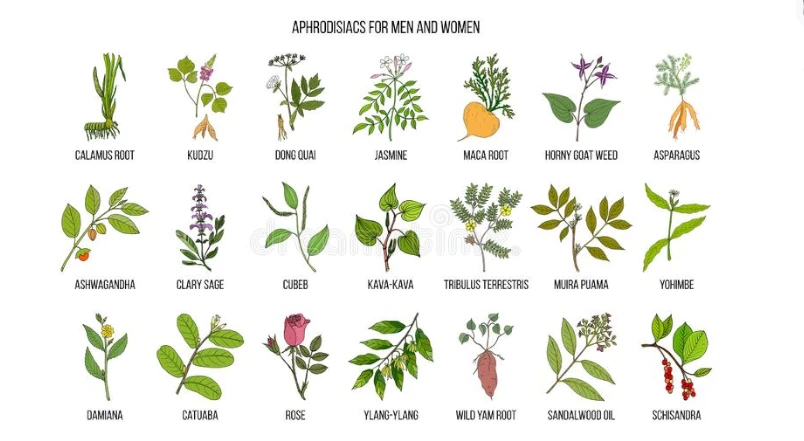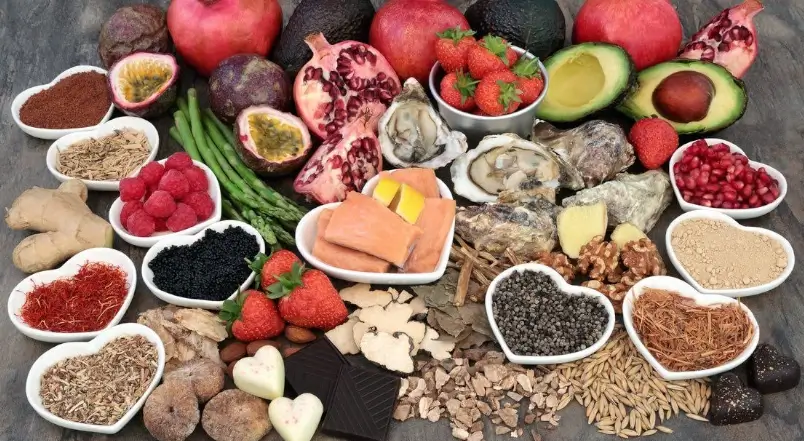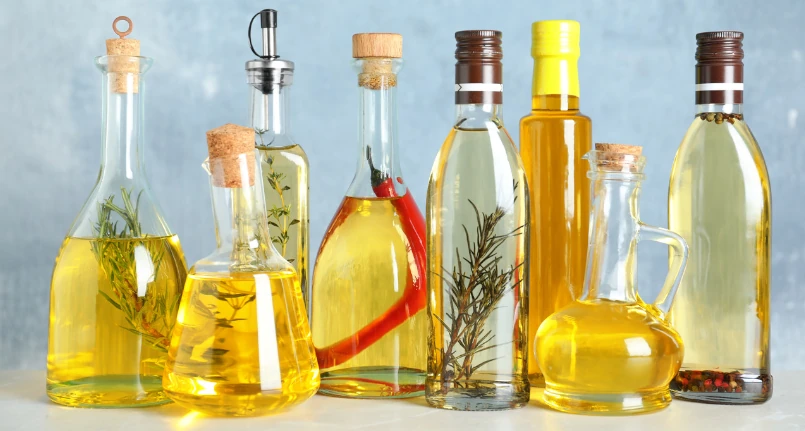Natural aphrodisiacs
In the general article on aphrodisiacs we talked about these substances, emphasizing their “morality” and effectiveness. We have therefore come to the conclusion that, somewhat as happens for homeopathic remedies , aphrodisiac foods and preparations work above all when those who consume them are convinced of their effectiveness ( placebo effect ).
If all these factors of psychic origin are missing, many products with a presumed aphrodisiac effect inexorably lose their effectiveness. After all, if we think about it, even sexual desire is deeply linked to psychic factors, as well as physiological ones.
In this article we will devote our attention to herbal preparations, while foods with aphrodisiac properties will be treated on a separate page.
The herbal remedies recommended in the presence of a decrease in sexual desire are numerous. Some of these are based on herbs and plants rich in substances with properties that have not yet been fully clarified, but which could actually have an important aphrodisiac action. Others derive from popular tradition, which has always been attentive to studying the stimulating virtues of plants and herbs.
Yohimba
Pausinystalia yohimbe is a tree that grows in the western regions of the African continent (Nigeria, Cameroon, Congo and Gabon). A powerful alkaloid called yohimbine is obtained from the bark of this tree . This substance, widely used before the advent of viagra (which cannot be considered an aphrodisiac), is used in the treatment of erectile dysfunction .
Yohimbine has the ability to release and dilate the vessels of the penis , increasing the blood flow and, consequently, the consistency and duration of the erection (inhibitory action on α-2 receptors which stimulate the contraction of vascular smooth muscle ) . This substance is also known for its alleged slimming effects related to the stimulation of the adrenergic system (increased secretion of catecholamines ).
Due to its side effects, this drug is banned in some countries. This alkaloid can in fact cause severe migraines, insomnia and arterial hypertension .
Dosage: 5 to 6mg to be taken three times a day for eight weeks. When it comes to herbal preparations, the intake levels still depend on the product which can be more or less concentrated and purified.
Muira Pauma
Muira Pauma is a small tree that grows wild in Brazil along the banks of the Amazon River. Interesting alkaloids are obtained from the roots and stem which, also in this case, can cure sexual dysfunctions in both men and women. In fact, these substances stimulate peripheral vasodilation thanks also to the increased production of nitric oxide .
Investigations on the possible effects of this plant have shown that, in high doses, the Muira Puama extracts alter the coordination of movements due to the increase of acetylcholine in the muscle resulting from the massive inhibition of cholinesterase (enzyme that breaks down acetylcholine, an important neurotransmitter ).
Ginkgo bilboa
Ginkgo bilboa is a plant typical of Chinese folk medicine but also well known in Western countries.
Its aphrodisiac properties are related to the content of terpenlactones and ginkoflavone glycosides . Both of these classes of substances with an unreassuring name are actually very useful in regulating circulatory function. Their vasodilatory actions are used not only to increase sexual desire, but also for their adjuvant effect in the treatment of Alzheimer’s disease .
Ginkgo extracts should not be used in association with platelet aggregation inhibitors , such as heparin and aspirin and with products that increase gastric acidity, such as garlic and willow .
Maca
Maca roots, also known as Peruvian Ginseng , are used for their energetic , aphrodisiac and tonic properties. Being rich in vitamins and phytohormones, Maca extract would be able to naturally increase testosterone levels (from which the alleged aphrodisiac effect would derive), sexual desire and the amount of sperm produced.
Also in this case there are several studies that testify to the aphrodisiac properties of Maca-based preparations. Alongside these there are others who, as often happens, punctually deny them by highlighting the absence of the alleged beneficial effects. According to these studies, Maca extracts are not able to keep their promises and do not appreciably increase sexual desires and hormone levels.
Damiana
Damiana is a plant native to Mexico and the southern United States. Extracts from this plant have been widely used by Mexicans as a powerful aphrodisiac for both men and women.
Unfortunately, even in this case there is no clear scientific evidence on the real properties of the plant. A study suggests that some substances present in Damiana may have effects similar to progesterone and may therefore contribute to the regulation of the menstrual cycle and the increase of libido in women.
L- Arginine
L-Arginine is an amino acid that regulates numerous bodily functions. Among all these functions, arginine also intervenes in the synthesis of nitric oxide , a substance that induces vasodilation by decreasing blood pressure and increasing the blood supply to the tissues. This effect could somehow contribute to the increase of sexual desire and performance by increasing the blood flow to the genitals.
Tribulus terrestris
Tribulus terrestris is a herb that has been used for many centuries in traditional Chinese and Indian medicine. Various researches attribute to this plant strong aphrodisiac properties capable of increasing male and female fertility by making up for any hormonal deficiencies. Obviously, also in this case, studies demonstrating the exact opposite cannot be missing (see: tribulus terrestris )
At this point, three other plants remain to be examined (Tongkat Ali or Eurycoma longifolia; Fo-Ti or Polygonum multiflorum; Epimedium or Epidmedium Sagittatum) but we prefer to stop here and conclude with a brief reflection.
At the end of this article, even the most inattentive reader has probably understood that the effectiveness of natural aphrodisiacs derives mostly from local traditions and from a few isolated studies, often devoid of any scientific basis (not to mention the possible side effects and interactions with other drugs or diseases).
If the lack of desire is important, it is advisable to consult a specialist doctor who will try to solve the problem by collaborating with other important figures, such as the psychologist and the herbalist himself .
Finally, we underline the importance of physical activity and a healthy diet . The pleasure of moving and being with others, associated with the aesthetic and functional improvement of one’s body, is in fact able to give security and self-esteem while also improving sexual desire and performance.




